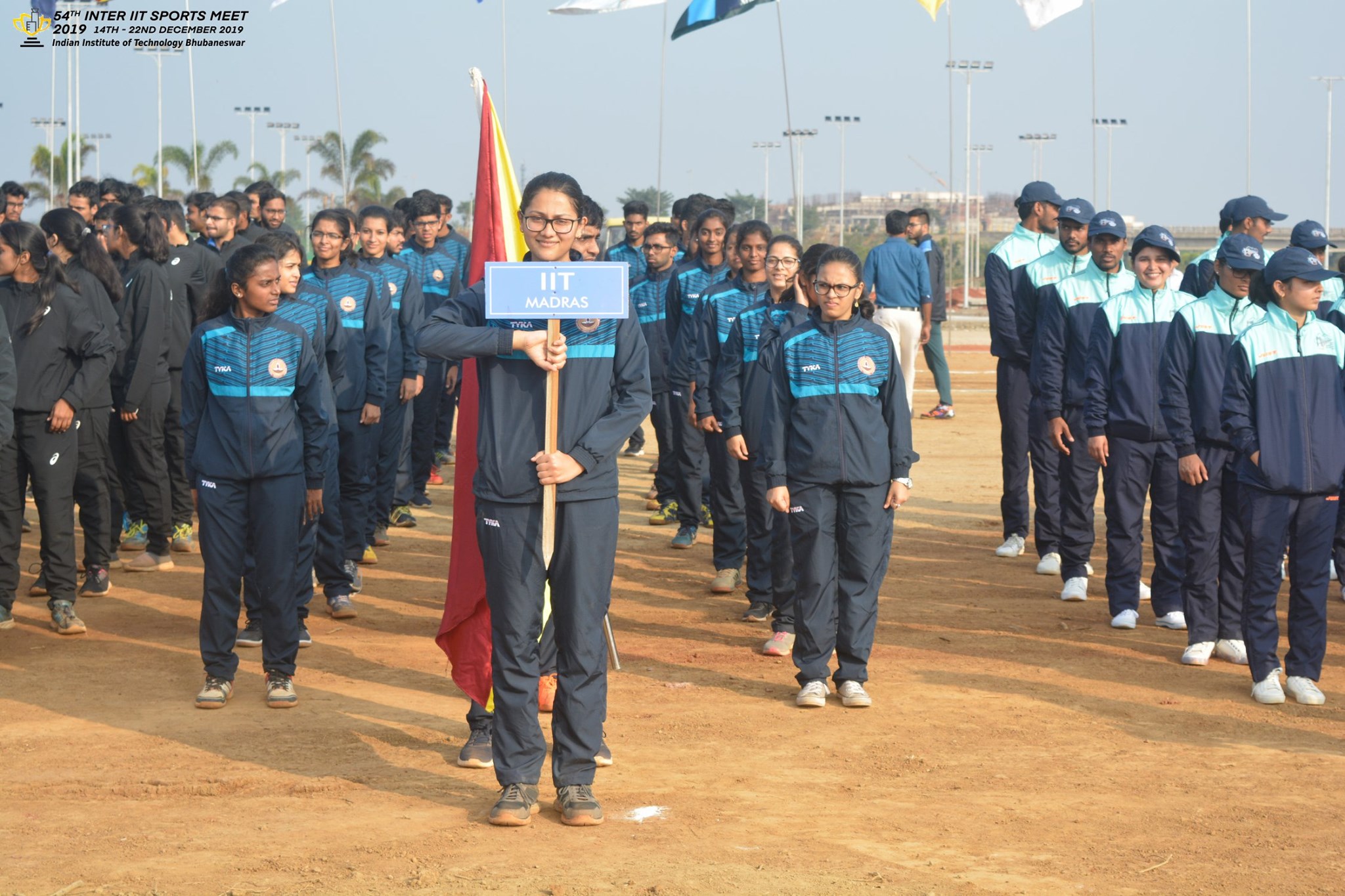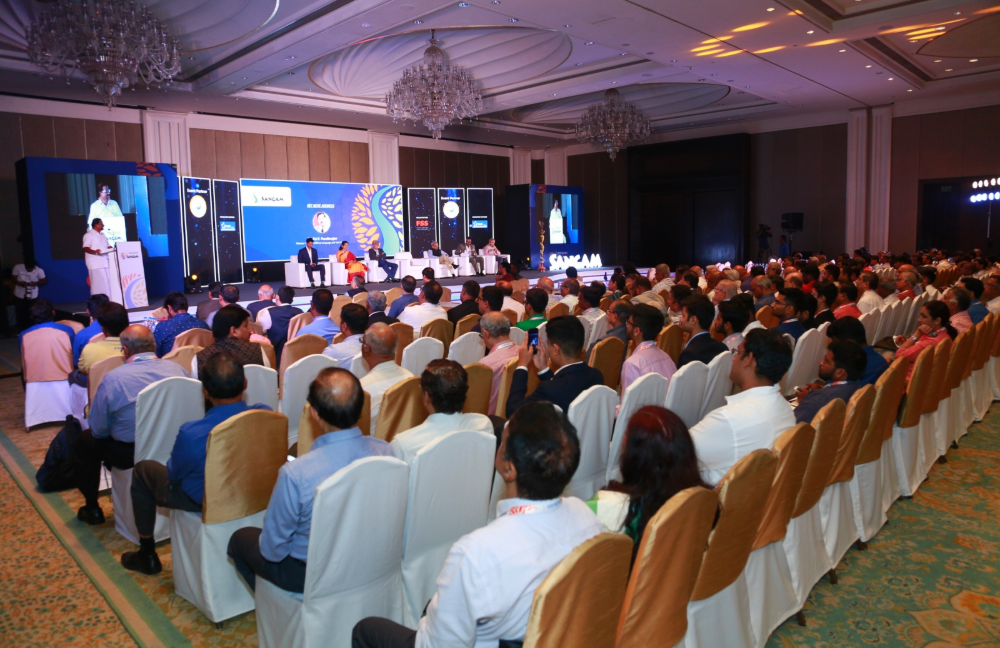Edited by: Sharayu Shejale
We all know that coordships and volships cost you your precious sleep and any hope of a peaceful semester. But how much does it cost you from your own pocket? In the chaotic hustle of getting the planned activities done- whether it is getting expandable tubes for the theme release as a core, or picking up guests from the airport as a volunteer – students pay out of their own pockets all the time, of course, in the understanding that the money would come back to their pockets.
The Gymkhana fee – you must have seen a small fee in your invoice – is what you pay from your part to keep Saarang, the clubs and all those things running. Some of you then take the next step and become Volunteers, Coordinators, Convenors and Cores and so on to make sure things really get done. The money has been taken care of by the students themselves, so why is it inevitable that you pay extra?
Who better to ask than a core himself?
Akash Ramdas, a former Events Core, says that there have been times that he has spent his own money to get things done – many last minute and immediate requirements for various events. As a volunteer, too, he has spent his own money for similar purposes. “I can’t tell you a proper number for this though, for all my years with the team, I have not really kept exactly figures of the money I have spent – these are often small immediate needs. The smaller amounts do tend to add up a lot. Stuff like paying Rs. 100 to the guy who opened up the venue and so on. But I can tell you that it’s around 5-10,000 ballpark area,” he says. “Although,” he adds with a laugh, “this is if you exclude the team treats, of course.”
He further says, “I haven’t spent huge amounts, as you can see, and any great amounts I have spent have been reimbursed. The smaller amounts – mostly not, I’d say. And this 5-10k amount is the amount that I have lost in total during my time as part of the team.” As to the amount that he has spent and had it reimbursed, Akash says, would be around ten thousand. “But I can only speak for my team,” he adds, “because my Events team was not too much of a high-equipment team, and so we didn’t have huge bulk payments to be made, as in the case for Choreo Club and such other teams.” While it’s perfectly possible that the other two cores might have lost more or less, Akash notes, all three of them were aware, at least on some level, that these amounts wouldn’t be reimbursed.
Coordinators, too, have to spend their own money in similar situations. A few Coordinators, in fact, went on to say that they believe they spent more than the Cores over the year.
To what extent this stance is an official one and representative of their entire community, we cannot say, and one must understand that sweet lime-juice induced rants on front of Cool Biz on the hardships of Coordships are not always planned or scripted, and neither the party ranting nor the party listening expects they are of a serious nature. But this does not prevent anyone from remembering it and raising the topic elsewhere – indeed it did not prevent us – and here is what Akash had to say about it: “I believe that the coordinators would think they spend more because they never see the Cores spending. Generally, Cores are not present for on-ground events. And I’d say that if at all, the Convenors spend more than the Coords and the Cores. The Convenors need to make on-ground calls – let’s say you need some equipment right now, and the Convenors ends up taking responsibility for it since the Cores aren’t there. I do believe that I have tried my best to minimise that when I was in the team, but I do know a few situations where this has gotten out of hand, but we did try to get most of it reimbursed, but I wouldn’t say it was ideal.
Also, I’d say that Coords might feel they spend more because they are not directly involved in the financial process. They very rarely interact with the Finance team. It’s always through the Cores or the Convenors. So there is a general feeling that since they are not directly involved, they are neglected – it might be a feeling that if you’re directly involved in this, you can ensure that you get your money back, which is not necessarily the case. At least in my year – and not in any other year, I believe – I don’t think that any Core would prioritise their own reimbursement over that of the Coordinators.”
“I remember a Convenor that had to spend over four thousand for an event. He did get it reimbursed though.”
As to getting to the root of the problem, we need to understand how the system works. There are three methods by which the institute gives money to Convenors or Cores. One is the wire transfer, second is the temporary advance and the third is the reimbursement method:
-
- Generally, for large payments, the institute directly wires the money. This is what happened in the days of the Guru vouchers, where one would keep spending the Guru vouchers and in the end, Guru will give one invoice which will be wire transferred to them. A similar process was followed in the case of Choreo costumes and so on. However, these wire transfers take time. When the invoice comes, it needs to be checked – the GST number, the vendor’s name, the account number, and other such details. Then the invoice needs to be signed – first approved by the Cultural Advisor, then by the DoSt, then it goes to the bank, processed and then it finally gets done. There are problems at each stage of the process. The first being that it needs to get approved by the Cultural Advisor. This gets very tedious if the Advisor is not free, and if they’re out of the campus or out of town, it’s next to impossible. Then the DoSt needs to approve – and the same problem arises. It is impossible to authorize the invoice without him, since the DoSt is the registered banker. The last step is the bank itself, and this always requires multiple trips. After this, it usually takes another five days for the money to be transferred.
- The second method, temporary advance (TA), is when one gets money in someone’s bank account, declare its purpose and then spends it. More often than not, one can’t predict exactly how much money would be required. Furthermore, the TA needs to be settled in 15 days. This is a problem because many events happen together in a week, and a lot of them get rescheduled. These expenses are hard to keep track of. To close a TA, one needs the Cultural Advisor’s signature again, and then that of the DoSt. Only after the first TA is closed, can another one be requested. So, there is an unpredictable time lag between requesting one and receiving one.
- Reimbursements are fairly similar, but slower. The forms are the same. The problem arises when one can’t get the money by the time it was needed. Then there are several issues like juggling funds around, the DoSt bank account being empty – there’s not much one can do about it. The funds are used by many teams including CFI and the like as well, sometimes teams overspent and they have to wait till it has money again. By this time, the team members have to spend their own money because the event has to happen.
“So, I’d say that more than on the spot expenditures, it’s the entire process of the approval that really delays it and ends up with us paying,” Akash concludes. “The expenditures of the events of my team”, particularly, “has an urgency to them, this urgency is not in the process of approval. There is also the fact that any urgency we do have will be for TAs and the like since getting the next event done is more important than anything else. Reimbursements do happen, I know that while most of my team got reimbursed, not everyone did, and even then it was not on time. We do need to come up with and have been trying to as well, come up with better solutions to these problems. The Finance portal introduced this time should hopefully be able to help with these, but we’ll have to wait and see.”
A former member of the Fine Arts team spoke about their time in the team. “The materials in Fine Arts cost a lot, so we don’t have to spend within insti, which was basically Gurunath. It is the materials we have to get from outside that we have to pay for. It is not every time that we have to go out to get these, most of it used to be available in Gurunath in the previous years. But during Saarang, the materials are more expensive and are not available inside, and so we need to get them from outside. Since we didn’t have a TA, we have had to pay out on our own.” The convenors and the cores end up paying more here and convenors rarely get reimbursed. Some clubs haven’t been reimbursed their contingent travel payments even now.
“I have spent around Rs. 11,000, together with one more person on the team. Around half of it is for Inter-IIT Culturals, and the rest on materials. And once you’ve spent your own money, it is quite difficult to get it reimbursed. But I believe that the procedure is not that difficult this time because of the Finance portal.”
A team that requires relatively more money is the Choreo club. They are allocated a fixed fund and programmes are decided accordingly. They have predetermined dance events outside Chennai. But they face a major barrier when it comes to the train ticket booking. Choreo club members are roughly a group of 30 people, so they have to book tickets in bulk number and the cost goes up to Rs. 30K. This is a huge number for the members to take it from their own pockets. To pay this the conveners depend on seniors or fellow students for their credit cards. Payments are done through these borrowed credit cards (sometimes the Convenor’s own) and paid later after the money is reimbursed. This gets risky as the reimbursement time gets longer. There are instances when the Choreo members go for programmes outside the state and they have to take money from their own hands for refreshments and food. Unlike sports participants Choreo team is not given funds for the food and refreshments. This is difficult for the members as well as conveners since the event and travel together take more than one or two days.
Coming to Saarang, there seems to be a trend of volunteers not getting reimbursed very often. It’s either that the bills are lost or that the amount is relatively smaller than all the other reimbursement bills. But even so, if one approaches the right person with at least some persistence, one should be able to get reimbursed. There have been attempts to make the system more efficient in the past. From changing the process of getting the money to methods of keeping track of all the reimbursements to be made. There was a Sangam credit card last year that would allow them to spend from it through the month and pay it off at the end of it. It worked fine until the card got hacked, and then they had to stop it.
A former ProShows volunteer who had spent more than 1500 Rs during Saarang never had the money reimbursed. The expenditures for this is mostly on the artist and their needs.
“I had to spend money on food demanded by the artist, their needs for acts and cab for airport and if they wanted to go around Chennai,” he says. He kept the bill until a few weeks ago when he realised that the ink had faded from them, but still has the digital copies.
When it comes to non-competitive events (i,e Spotlight, Informals and Meraki) the expenses are not high. In fact, the Coordinators and Super-Coordinators believe that expenses are within their limit and they get their money reimbursed even though it takes a while. They also get a temporary advance long before the event starts so that they don’t have to take money from their own pocket. If there are unforeseen expenses, they submit their bills and get the money back. Last year’s Informals Coordinator, Unni, says these expenses are limited to a maximum of Rs. 600. When asked whether the reimbursement process is rigorous, Meraki Coord Sanjeed says the process was pretty smooth and it was easier because he carried the bills. Teams that bring artists from outside sometimes have to bear the expenses when the artists wish to go out for sightseeing. “It’s really hard sometimes because the artists might choose restaurants or hangout places that are expensive,” says a coordinator from last year’s Saarang, who wished to be anonymous. Coords also have to take money for the airport parking charge when they go to pick up artists. Sometimes Coords assign volunteers to do this job, and the expense is transferred to the volunteers. This happens mostly in ProShows and sometimes in Spotlight teams. We also talked to an Events Core who said: “the Supercoords and Cores make sure that the Coords and volunteers do not have to take money from their own hands during Saarang and if they have to they try to get it reimbursed for them. Events Cores cover the expenses before the Saarang with the Temporary Advance and always tries to avoid surprise expenses”. He does agree, however, that the reimbursement system is slow.
Being part of Saarang, Sangam and the other teams in the institute and personally working towards ensuring that these events – the events that make insti life what it is – it is definitely a big opportunity. These roles demand a significant part of your time and energy, and in many cases, and one might infer, your money as well. It is possible that the financial aspect of these issues only adds to the already wide social background disparities between those who apply for these roles and those who do not. Hence, it is important that these differences be minimised. This issue will definitely not be over in a day, but people are aware of these and are working towards solving them. New initiatives such as the Finance Portal aim at streamlining and hastening the process of reimbursement so that such costs are minimized, or non-existent.
Disclaimer: The above article is written on the basis of multiple personal interviews with people who are and were involved in insti’s cultural scene. The transcripts for the same can be shared on request. Furthermore, for the purposes of this article, we have restricted our analysis to Saarang and the cultural domain. This does not indicate whether this phenomenon does or does not happen in other verticals as well.





Great work with the article guys… It’s nice that you guys actually took this up. The financial system that we have for culturals does need many more improvements and streamlining. Hope this year’s team can sorry out most of these issues.